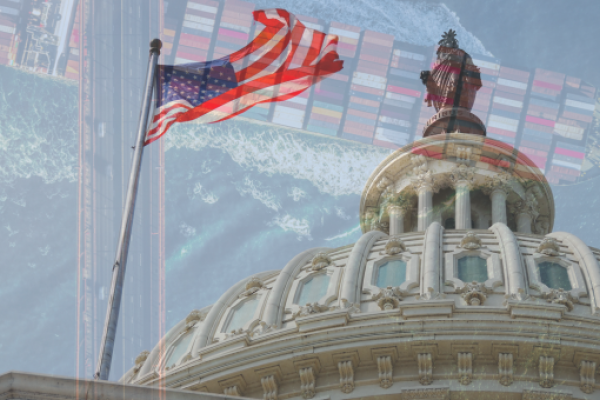
Steamship Mutual
Published: January 02, 2024
Following on from this, Congress continues to implement new legislation addressing sexual assault and sexual harassment and the National Defense Authorisation Act of 2023 (NDAA) created new vessel requirements, under Title 46 of the United States Code, in relation to sexual assault and sexual harassment (SASH) prevention, reporting, and compliance.
These requirements are intended to enhance crew safety and eliminate sexual assault and harassment within the maritime industry. SASH continues to be a focus of the United States Coast Guard (USCG). Further review of these new statutory requirements is being conducted by USCG to see whether further regulation is required. In the meantime, USCG has issued the following guidance upon the implementation of the new laws:
- Crew resting areas and washing places must now prominently display details concerning company policies, how to report issues and steps to respond to sexual assault, harassment and sexual harassment.
- Applicable vessels are now required to install and maintain video and audio surveillance in areas adjacent to cabins and retain recordings for at least 1 year, or 5 years when the footage is associated with an incident. In addition, vessel owners and employers are required to train crewmembers in responding to and reporting sexual assault, harassment and sexual harassment.
- Applicable vessels are now required to establish master key controls and related procedures for use of master keys, to include a list of authorised cabin master key users and a logbook of master key use. These logs must be made available to law enforcement during an investigation. Any crewmember who uses the cabin master key without having been authorised is subject to a civil penalty of not more than $1,000 and may be subject to suspension or revocation under section 7703.
- The statute for safety management systems has been amended to require additional procedures and training related to SASH, to include annual training on prevention, bystander intervention, report, response, and investigation of incidents. Applicable companies and vessels are directed to include procedures to report and document instances of harassment, sexual harassment and sexual assault in the SMS. Further guidance on reporting can be found at MSIB-01-23_Sexual_Misconduct_Reporting_Requirements.pdf (uscg.mil)
Section of 46 USC 10104 now includes ship owners as a responsible entity and mandates that the responsible entity of a vessel, defined as the owner, master, managing operator, or employer of a seafarer on a documented vessel, report any complaint or incident of harassment (and this includes all forms of harassment), sexual harassment, or sexual assault which violates company policy or law to the Coast Guard and to the appropriate officer or agency of the government of the country in whose waters the incident occurs. These reports must be submitted to the Coast Guard Investigative Service via the CGIS Tips App or by emailing them at [email protected]. Failing to report may result in a civil penalty up to $50,000.
There is also a second follow-up report that is now required to be submitted to the Coast Guard within 10 days of the initial report detailing what actions the company took after becoming aware of the sexual assault, harassment or sexual harassment complaint. Companies will need to be careful here because failing to timely file the supplementary report exposes the company to a $25,000 civil penalty in addition to a $500/day penalty for continued non-compliance, up to $50,000. Furthermore, 46 USC 7704 provides that SASH are grounds to suspend/revoke a mariner’s license. Also see Coast Guard Policy Letter 03-23 – Evaluation of Suitability for Applications for Convictions of Sexual Assault (CG-MMC PL 03-23 Convictions for Sex Offenses 20230523 (002).pdf (uscg.mil)
Some recommended best practices for ship-owners could include:
- Ensure compliance with regulations in effect – i.e., immediate reporting, key control, notices.
- Training programs – Prevention and stopping behaviour at all levels before more serious incidents happen is key. Establishing a culture within a company is important. Ensure personnel know what amounts to sexual assault/harassment and how to properly deal with such a report.
- Review and update all company and vessel policies and procedures to ensure such policies fully support a work environment in which assault, harassment, and retaliation against those who report assault or harassment is not tolerated. Make sure there is a detailed plan on what to do if/when a complaint is made.
- If confronted with such a situation – consult legal counsel immediately.
With thanks to Gary Murphy, Simms Showers, Baltimore for his assistance in drafting this article.


